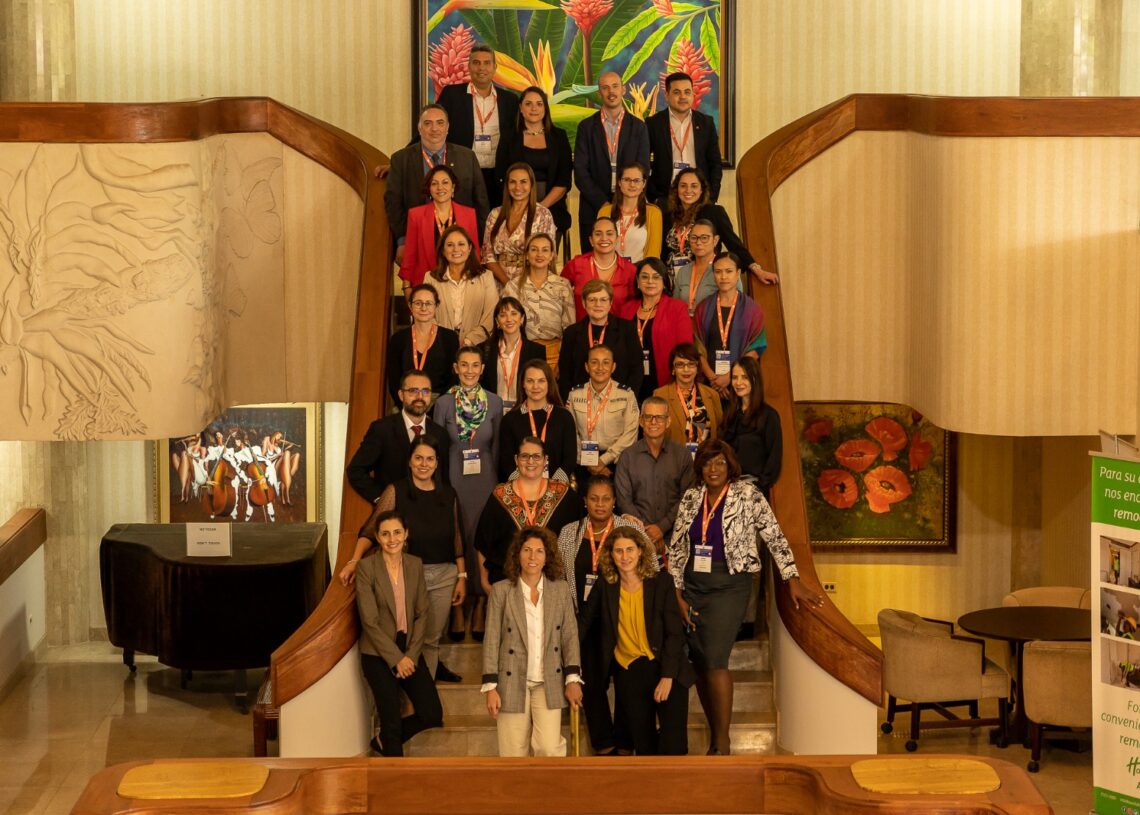The international community has been reflecting for years on how to address criminal and prison policies more effectively in a context where the saturation of prisons and the impacts of imprisonment on individuals and communities make it necessary to seek greater proportionality and the implementation of alternative penalties in the design of the punitive response. Almost 12 million people are in prison for drug offenses. Althought women in prison represent 8% in the Americas, the figure has doubled in the last 22 years, by 56.1%, while the overall prison population increased by 24.5%.
For all these reasons, the European Union’s cooperation program on policies COPOLAD III organized a regional workshop on October 16-18 in San José, Costa Rica, to address the construction of a regional pact for a criminal policy on drugs based on proportionality and criminal alternatives in order to design a more humane penal and penitentiary policy. The event included a National Workshop to promote a Protocol for women in conflict with drug offenses, related to Article 77 bis of the Penal Code (referring to women who enter penal centers as transporters of illegal substances). In addition, the Report of the Inter-American Commission on Human Rights of the OAS, Women Deprived of Liberty in the Americas 2023, was presented.
“The prison system should not be the option for the social system of rights, there are alternative measures, an example of this is restorative justice, which allows to humanize each case and levels of overcrowding that are acceptable not as we have today”, explained Eixleine Sanchez Torres, Vice Minister of Justice and Peace of Costa Rica at the event.
Participants
In addition to the Vice Minister of Justice and Peace, several representatives of the Judicial Branch participated in the event, such as Magistrate Gerardo Rubén Alfaro, Rector of Restorative Justice, Heldren Solórzano, Deputy Director of the Costa Rican Drug Institute (ICD), Oswaldo Aguirre, director of the Institute on Alcoholism and Drug Dependence (IAFA), and Pierre-Louis Lempereur, Ambassador of the EU Delegation in Costa Rica as well as Peggy Martinello, from the lead institution of the COPOLAD III Program, FIIAPP.
Regarding the regional actors, Enrique Botero, Secretary General of the Conference of Ministers of Justice of the Ibero-American States (COMJIB), Juan Carlos Murillo, Director of the National Agency of the Ibero-American States (AIDEF) and Cherlyl St. Louis, Director of the National Drug Agency of Trinidad&Tobago, Julietta Pellegrino, Advisor on Penitentiary Affairs of the Ministry of Justice in Argentina, Carolina López, deputy director of the Victoria Kent Social Insertion Center of the Ministry of the Interior (Spain), Maria Lorena Segovia, Ombudsman General of Paraguay, Américo Gegaloto, representative of Portugal from the prevention institutions and Fabián Rossano, from the National Directorate of Assisted Liberty of Uruguay, as well as various experts in the areas related to the subject in Costa Rica.






